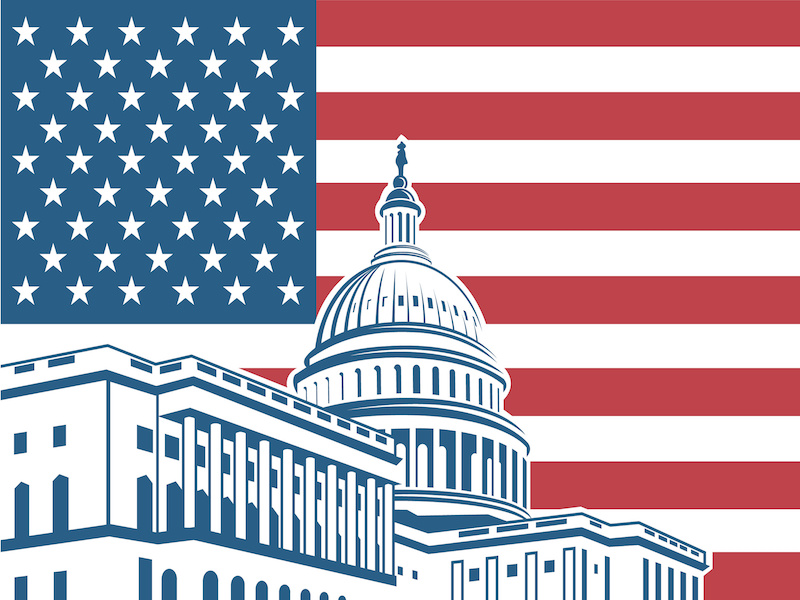

Whether Joe Biden or Donald Trump ultimately wins the White House, the stock market is already a clear winner this week.
While there were fears that a longer than usual wait to determine the winner of the U.S. presidential race would lead to wild market volatility, that didn’t come to pass. But signs were there over the past few months that the bull market was going to keep galloping forward despite stark political divisions in the U.S.
“In hindsight — obviously, I don’t work for Hindsight Capital — but in hindsight every market, and risk markets in general, were going to go up no matter what,” says Robert Almeida, investment officer and global investment strategist at MFS Investment Management.
Read: U.S. markets betting on Biden, investors preparing for energy sector impacts
“What happened to volatility in the latter part of Wednesday and Thursday? I think that this feels and looks like a late-cycle dynamic where the level of investor demand is outweighing the level of investment supply — and the reaction function to that is materially higher prices until there aren’t.”
A delayed result to the election was always likely since the coronavirus pandemic meant a much higher mail-in voting rate than in previous elections, but prolonged uncertainty about who the next U.S. president could drive prices down.
“Litigation, like there was in 2000, could take weeks to resolve — it was Dec. 13 until there was an outcome [in 2000],” said Charles Meyers, chairman of Signum Global Advisors, during the Canadian Investment Review’s virtual Investment Innovation Conference on Wednesday.
“The U.S. equity market sold off eight per cent and I would argue today, in a scenario like that and that kind of delay, the market will sell off more because, first of all, we’re at near-time highs and, secondly, given the actors here . . . particularly Donald Trump, it will be a much more volatile period during that undecided or contested period, so I worry about that.”
Read: What do the U.S. midterm results mean for institutional investors?
While Trump has already filed many legal challenges, it seemed unlikely as of Friday morning that a weeks-long battle like in 2000 will materialize, but the battle for the U.S. Senate might drag on until January as Georgia may have to hold run-off elections for both its seats.
This week, at least, investors have decided the lack of a decisive “blue wave” for Biden will ultimately lead to what Japan’s Mizuho Bank Ltd. dubbed “Goldilocks Gridlock.” Experts believe there will be less dramatic policy moves if Biden just squeaks in a photo finish and thus more certainty for institutional investors in the coming years.
“Before, we thought we may get $2.5 or $2 trillion of stimulus under Biden, now it looks like less than $1 trillion,” says Keith Wade, chief economist and strategist at Schroders. “Unless you get a vaccine, the underlying economy could lose momentum next year, [but] it’s doing OK at the moment.”
Earlier in the week, many stores in cities around the U.S. boarded up their windows in anticipation of unrest due to an uncertain election, but that ultimately hasn’t come to pass, which also led the markets to breathe a sigh of relief.
Read: A look at the investment implications of today’s U.S. election
“We set the bar really low going into this week and we reached that really low bar,” says Matthew Benkendorf, the chief investment officer for Vontobel’s quality growth boutique. “Hopefully, we can raise that bar higher as we go here.”
While the wall-to-wall TV coverage of the vote count in yet-to-be-decided states has many feeling like they’re watching the most important reality show in the world, other factors such as the ongoing pandemic and the resulting high unemployment and low interest rates will likely have a bigger impact on the markets this year and next, he notes.
Indeed, there’s a current disconnect between Wall Street’s wins and the losses piling up on Main Streets across the U.S. If the country doesn’t find a way to get the coronavirus under control soon, more struggling small businesses will have to shutter and the markets will respond, says Benkendorf, noting it’s yet to be seen how institutional investors will react to prolonged economic pain.
Read: 91% of institutional investors say pandemic will lead to a global recession: survey
